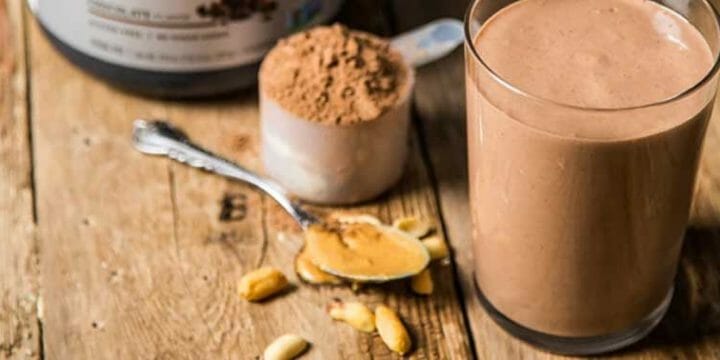One of my old patients was recently nauseated during high-intensity exercises, possibly due to pre-workout ingredients that should be avoided. I know his abilities, and the training for that day wasn't anything he couldn't handle.
Drawing on my medical expertise and understanding of the potential adverse effects of such supplements, I had an approximate assumption about what went wrong. The patient told me he took a pre-workout formula he had never used before.
To substantiate my clinical suspicion, I embarked on an investigative research project focused on the relationship between pre-workout supplements and the onset of nausea.
Quick Summary
- Pre-workouts can make you have nausea because of some harmful ingredients that don't suit your body system, or taking inappropriate dosage.
- The best way of getting rid of pre workout nausea from pre-workouts is by properly reading the instructions, lowering the dosage, and taking your pre-workouts with protein shakes or some simple carbs.
- Headaches, digestive issues, and a jittery feeling are some side effects linked with pre-workouts.
- It's essential to choose pre-workout supplements wisely and be aware of potential side effects to ensure a safe and effective workout experience.
Why Do Pre-workout Supplements Make You Nauseous?

Pre-workout supplements could make you nauseous because of the inappropriate dosage, harmful ingredients, or ingredients that don't suit your particular system.
My patients tried a bunch of pre-workouts, and I've noticed that many of them have higher doses of stimulants than their bodies can handle.
Most of the time, the main culprit is caffeine. Mayo Clinic recommends no more than 400 mg of caffeine daily intake [1].
Therefore, a common opinion is that pre-workouts shouldn't have more than 300 mg of caffeine per serving, yet companies are pushing the limit to 400 mg per serving and above.
Many pre-workouts have higher doses of caffeine in the formula because the more caffeine it has, the faster the effects arise, believing that the pre-workout is the real deal.
Too much caffeine leads to several side effects, including jitters and feeling sick. One of the reasons this may happen is because caffeine stimulates the stomach to produce acid, provoking acid reflux [2].
Some companies also develop their formulas with questionable ingredients such as Synephrine and DMAA (banned in the USA). These ingredients may cause adverse effects, and feeling sick is among the mildest.
How To Get Rid of The Sickness?
The first thing you should consider to prevent pre workout sickness is prevention, which means reading the pre-workout supplement label. If it contains high doses of potential trigger ingredients, you should avoid that pre-workout supplement altogether.
If you still want to use that pre-workout, try lowering the dose. You could start with a half scoop, and you could gradually increase with time, as your body may begin to build a tolerance to certain stimulants.
It would be best to take some general actions before consuming pre-workouts, such as avoiding taking pre workout on an empty stomach.
If you take pre-workout on an empty stomach, ingredients will quickly enter your bloodstream, causing your body to cope fast with all the effects of pre-workout. It would be enough to take pre-workout with some simple carbs or mix it with a protein shake to avoid this.
The other rule everyone should follow is to consume adequate amounts of water pre-workout. Mix it with water, drink it about 30 minutes before exercise, and drink water during and after the training.
Related Articles:
What Other Side Effects Could It Cause?

In my clinical practice, I have observed that pre-workouts can sometimes cause other side effects like jittery feelings, water retention, and even annoying headaches.
In rare cases, pre-workout may yield more severe conditions such as hypertension, heart palpitations, and sleep issues.
Pre-workout ingredients other than caffeine could also lead to health issues for some gym-goers.
A common pre-workout ingredient, creatine, besides muscle growth, may cause digestive issues such as bloating due to water retention it provokes [3].
These side effects often happen in the first few days of using creatine supplementation or if dosages are above recommended.
One study also showed that pre-workout has the potential to raise diastolic blood pressure [4].
A beta-alanine, an amino acid that lowers the acidity in your muscles during the workout, may cause uncomfortable tingling sensations that people mostly feel in the back, neck, hands, and face.
It's a soothing neurological effect called paresthesia that usually stops 60-90 minutes after use [5].
Citrulline malate is added to some formulas to increase blood flow by raising nitric oxide levels, leading to blood pressure changes in the brain's small blood vessels, causing headaches and migraines.
Related Articles:
Other Causes of Nausea During Workouts
Exercising in hot conditions can result in heat stress, a leading cause of nausea. When the body overheats, it struggles to regulate temperature, causing discomfort and dizziness.
Staying hydrated is vital in these conditions, as dehydration exacerbates heat stress.
Drinking plenty of water before, during, and after exercise helps maintain proper body temperature and prevent nausea.
Additionally, taking regular breaks during workouts in high temperatures allows the body to cool down and reduce the risk of heat-related nausea.
Ways to Reduce Pre-workout Side Effects?
Ways to reduce pre-workout side effects include watching your daily intake and using pre-workouts that state the exact amounts of ingredients, as many pre-workouts hide behind a proprietary blend.
If you experience some side effects of pre-workout, you should either start to lower your dose or figure out what ingredient doesn't suit you. Try eliminating them one by one.
"Pre-workouts can be beneficial and safe to take if the ingredients are correctly listed on the label and the company is credible."
- Kate Patton, Dietitian at Cleveland Clinic
Also, you should avoid using pre-workout in the afternoon to make sure the stimulants are worn off before going to bed. It's an especially important step if you're caffeine-sensitive. Otherwise, you might end up destroying sleep schedule and feel more worn-out during the day.
If, after all, you continue to experience side effects, maybe you should consider visiting your doctor to be sure you don't have any underlying disease.
FAQs
How Long Does Pre-workout Stay in Your System?
Pre-workout might stay in your system for 4 to 6 hours, but it usually depends on the ingredients. That means that 4 to 6 hours is needed for pre-workout to wear off, but you could only feel the ingredient's benefits for about two hours.
Could Pre-workout Cause Depression?
Pre-workout could cause depression if the ingredients in the formula are questionable. Dimethylamylamine, Yohimbe, and artificial sweeteners like aspartame may lead to mood swings, resulting in symptoms of depression.
Is BCAA Better Than Pre-workout?
No, BCAA is not necessarily better than pre-workout because they have different effects. Pre-workout's primary goal is to give you more energy and improve focus, whereas BCAA's goal is to help muscle recovery. So pre-workout is there to prepare your muscles and BCAA to repair them.
References:
- https://www.mayoclinic.org/healthy-lifestyle/nutrition-and-healthy-eating/in-depth/caffeine/art-20045678
- https://www.nejm.org/doi/full/10.1056/NEJM197510302931803
- https://www.ncbi.nlm.nih.gov/pmc/articles/PMC2048496/
- https://www.ncbi.nlm.nih.gov/pmc/articles/PMC5755346/
- https://jissn.biomedcentral.com/articles/10.1186/s12970-015-0090-y
About The Author
You May Also Like






